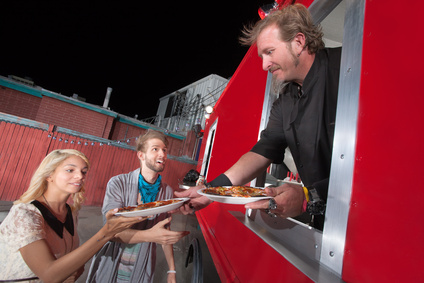Food Safety and Home-based Businesses

Don’t Eat Poop! Why Proper Hand-washing is critical
August 21, 2017
How to use Food Safety Education to Create a Food Safety Culture
August 21, 2017Have you ever made something so delicious that everyone around you, after licking their fingers clean, said – you should sell this? Many famous brands started with an old family recipe and a home-based operation before moving into a commercial kitchen.
In Alberta, a home-based business is still required to have a food safety permit and meet the requirements of a commercial kitchen if they want to sell their product widely. The one exception to this rule is the farmers’ market, but if businesses want to sell their products anywhere outside the farmers’ markets they will need a food permit. Even with a food handling permit, home-based businesses by nature tend to be smaller and have unique food safety risks.
Here are a few food safety risks to watch out for if you are starting or are running a home-based food operation:
Food Safety Training
Even though the business owner would have to take an Alberta government approved course they often have casual staff or friends and family that help them prepare their food product. These “helpers” may not have the food safety training and may unknowingly contaminate food.
The best way for business owners to manage this is to make sure they talk to their staff/family helpers about food safety. They must also enforce good personal hygiene i.e. hand-washing, clean cloths, hair tied back, no jewellery etc.… regardless of who the food handlers are – no auntie Deloris is not an exception.

Good Personal Hygiene Rules!
Finally, the business owner should know where the highest food safety risk is in their operation – for example, if the business makes meat balls, the cooking part of the process is likely the most critical food safety step since this is where all the harmful bacteria is destroyed. Knowing this, the owner would make sure to pay special attention to this step; in this example, use a thermometer and check the internal temperature of the product to make sure it reaches the appropriate temperatures.
Cross Contamination
Another inherit risk to smaller home-based food businesses is the potential for cross-contamination. The lack of physical space available in small home-based kitchens increases the likelihood of cross contamination during food preparation and storage.
Whereas a larger kitchen may afford to have separate raw meat vs. cooked or ready to eat food product fridges, in a smaller kitchen that may not be possible. The owners have to take special care to make sure that raw products such as raw eggs, meat or poultry are adequately separated from ready to eat foods.
Remember that germs like to hitchhike on things around your kitchen so utensils, cutlery and other surfaces can also contaminate food if not managed correctly. Chemical cross-contamination between cleaning or equipment cleaning chemicals can also be a source of cross-contamination.
As a Public Health Inspector, it was disheartening to get chemical poisoning complaints where someone accidentally used a non-food chemical mistaking it for a food ingredient because preventing these things from happening is not hard. In this case proper storage of these chemicals and labelling is crucial.
Expired Ingredients
Small businesses do not typically go through ingredients, especially minor ingredients that are not used often, as fast as high-volume facilities. As a result, there is a higher chance of the product sitting for too long and someone using the expired product in food production.
In this case, proper inventory control and appropriate purchasing is critical. Doing this right doesn’t only prevent food-borne illness, but can also save the business a lot of money (check out our blog on food safety and profits).
Home-based food businesses can be a vital part of any community. They spread happiness by sharing tasty products from timeless recipes. However, there is a need and a responsibility to make sure that food is prepared safely.
For more information about food safety risks and to learn more about food safety controls:
Check out our Food Safety Leaders online food safety and hygiene course.


